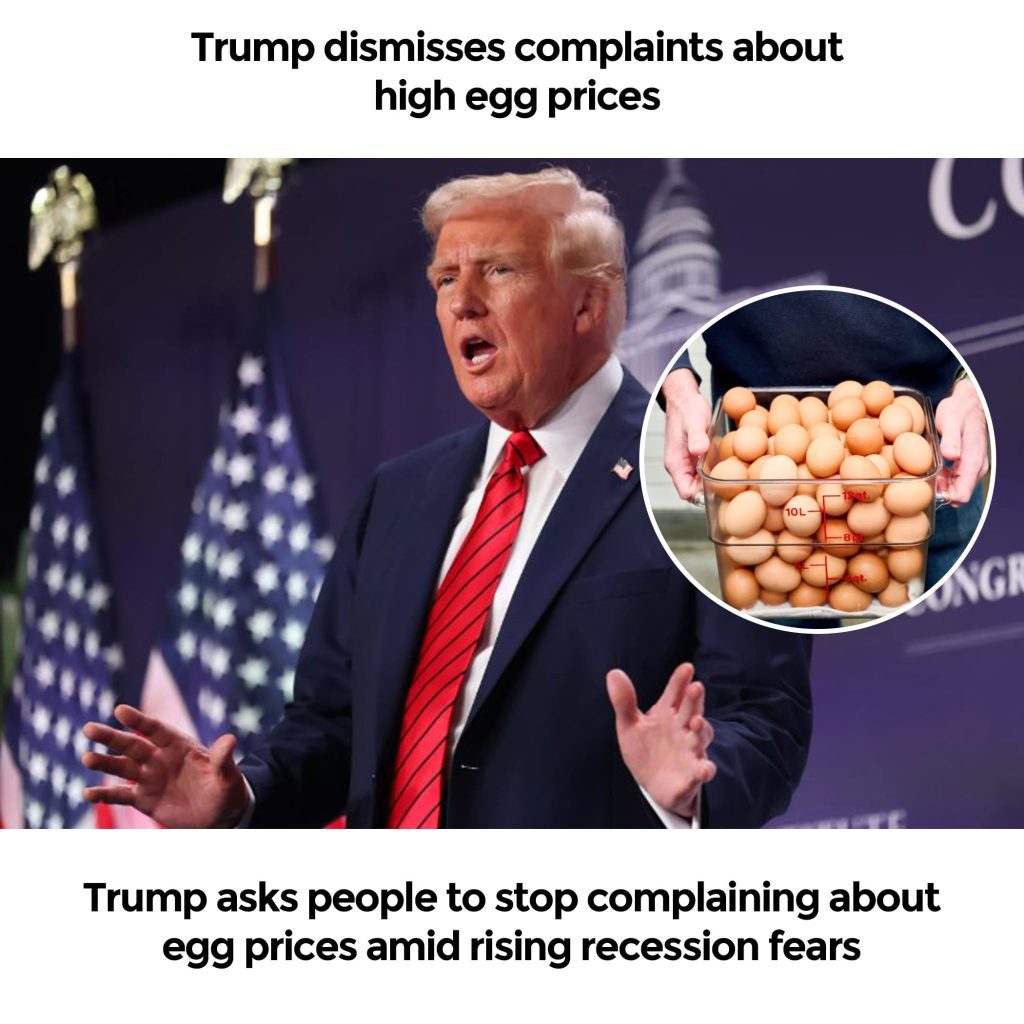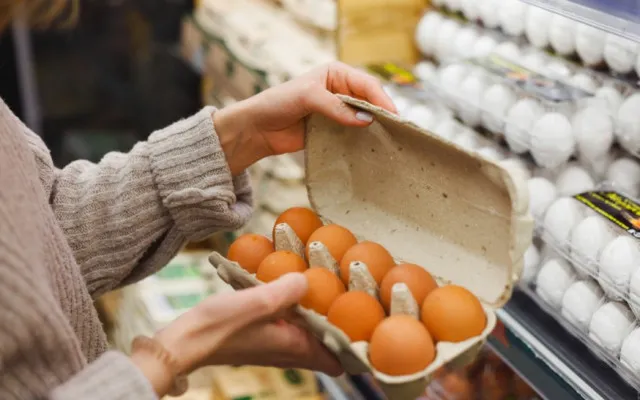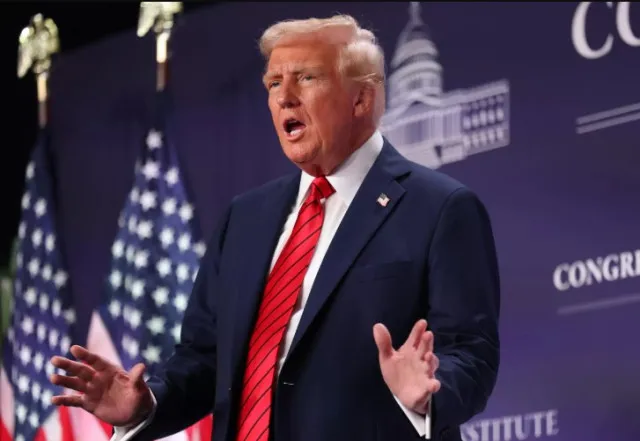Former President Donald Trump has once again sparked a heated debate with his latest comments about the economy. As fears of a potential recession grow, he urged Americans to stop complaining about egg prices, suggesting that the focus should be on bigger economic issues.
His remarks come at a time when many households are struggling with rising grocery costs, making his statement controversial and widely discussed across social media and news platforms. But is Trump downplaying a real issue, or does he have a point? Let’s dive into the discussion.

Egg Prices Are Soaring—And Consumers Are Feeling It
In recent months, the price of eggs has skyrocketed, causing frustration among consumers. Many Americans have seen their grocery bills increase, and essential items like eggs, milk, and bread have become more expensive.
Why Are Egg Prices Rising?
Several factors have contributed to the increase in egg prices, including:
- Inflation: The overall rise in prices has affected food costs nationwide.
- Supply Chain Disruptions: Delays in transportation and distribution have made it harder for grocery stores to keep shelves stocked.
- Avian Flu Outbreaks: Disease outbreaks among poultry farms have reduced the supply of eggs, leading to price hikes.
- Increased Production Costs: Farmers face higher expenses for feed, fuel, and labor, which ultimately get passed on to consumers.
For families already struggling to afford basic necessities, rising egg prices represent more than just a small inconvenience—they impact daily budgets and financial stability.

Trump’s Perspective: Focus on Bigger Issues
Trump’s message was clear: people should not fixate on egg prices when there are larger economic problems at hand.
He believes the media sensationalizes minor issues while ignoring broader concerns, such as:
- Recession Risks: Economic instability could have long-term effects on job security and financial markets.
- Energy Prices: Rising fuel costs are increasing expenses across industries.
- Government Spending: Trump has criticized policies that he claims contribute to inflation.
His statement aligns with an article he shared from right-wing activist Charlie Kirk, titled “Shut Up About Egg Prices—Trump Is Saving Consumers Millions.”
While some people agree with Trump’s point that the media overemphasizes small economic issues, others argue that food prices directly impact millions of Americans, making them an issue worth discussing.
Video: ‘Gaslighting’ Americans: Trump says he’s done ‘a lot of things’ to get egg prices down
Public Reaction: A Nation Divided
Trump’s remarks have led to a wave of mixed reactions online. Some Americans agree with his stance, believing that focusing on egg prices distracts from larger economic concerns. However, many others see his comments as dismissive of the financial struggles families face.
What People Are Saying
- Critics Say He’s Out of Touch
“He does not care about the citizens of this country, only his rich friends. But his supporters will continue to follow him.”
“He has no class or respect for his position. He doesn’t belong there.” - Supporters Defend Him
“This is what America wanted… some people are just upset that his policies are affecting them.”
“The media blows everything out of proportion. There are bigger things to worry about.”
Regardless of where people stand politically, one thing is clear—food costs are a real concern for many American households.
Experts Weigh In: Should Americans Be Concerned?
Economic analysts have pointed out that rising food prices aren’t just an inconvenience—they’re a warning sign of bigger economic trouble.
- Former Treasury Secretary Larry Summers recently said:
“I would have said a couple of months ago a recession was really unlikely this year. Now, it’s probably not 50/50, but getting close to 50/50.” - Many economists argue that when food prices rise, consumers spend less on other goods, which slows economic growth.
- A recession could lead to higher unemployment rates, lower consumer confidence, and reduced household spending power.
This means that even if eggs seem like a small issue, they are part of a larger economic picture that could spell trouble for millions of Americans.

Protests Erupt Over Economic Policies
Trump’s approach to economic concerns has already sparked protests.
On March 10, demonstrators gathered outside a Tesla dealership in Manhattan, voicing their frustration over government spending cuts and economic policies.
Chanting phrases like “Musk has got to go!” and “Democracy, not Oligarchy,” protesters criticized Trump’s connections with business leaders like Elon Musk, arguing that billionaires should not influence government decisions.

Is the Economy Headed for a Recession?
Many experts believe the U.S. economy is at a tipping point, with several warning signs pointing toward a potential recession.
Key concerns include:
- Rising Inflation: Higher costs of living make it harder for families to afford basic needs.
- Stock Market Volatility: Unstable markets make investors nervous and slow down economic growth.
- Federal Interest Rate Hikes: The Federal Reserve has increased rates to combat inflation, but this has made borrowing money more expensive.
If a recession hits, the impact could be far worse than expensive eggs—it could mean lost jobs, business closures, and financial hardship for millions.
Video: Trump Wants You To SHUT UP About Egg Prices
Conclusion: Are Egg Prices a Small or Big Deal?
At first glance, complaints about egg prices might seem trivial, but they are a symptom of a larger economic crisis.
While Trump argues that people should focus on more significant financial issues, the reality is that high food prices affect everyday Americans in a direct way.
Whether or not a recession is coming, one thing is certain—Americans are feeling the squeeze, and food costs are just one piece of a much larger puzzle.